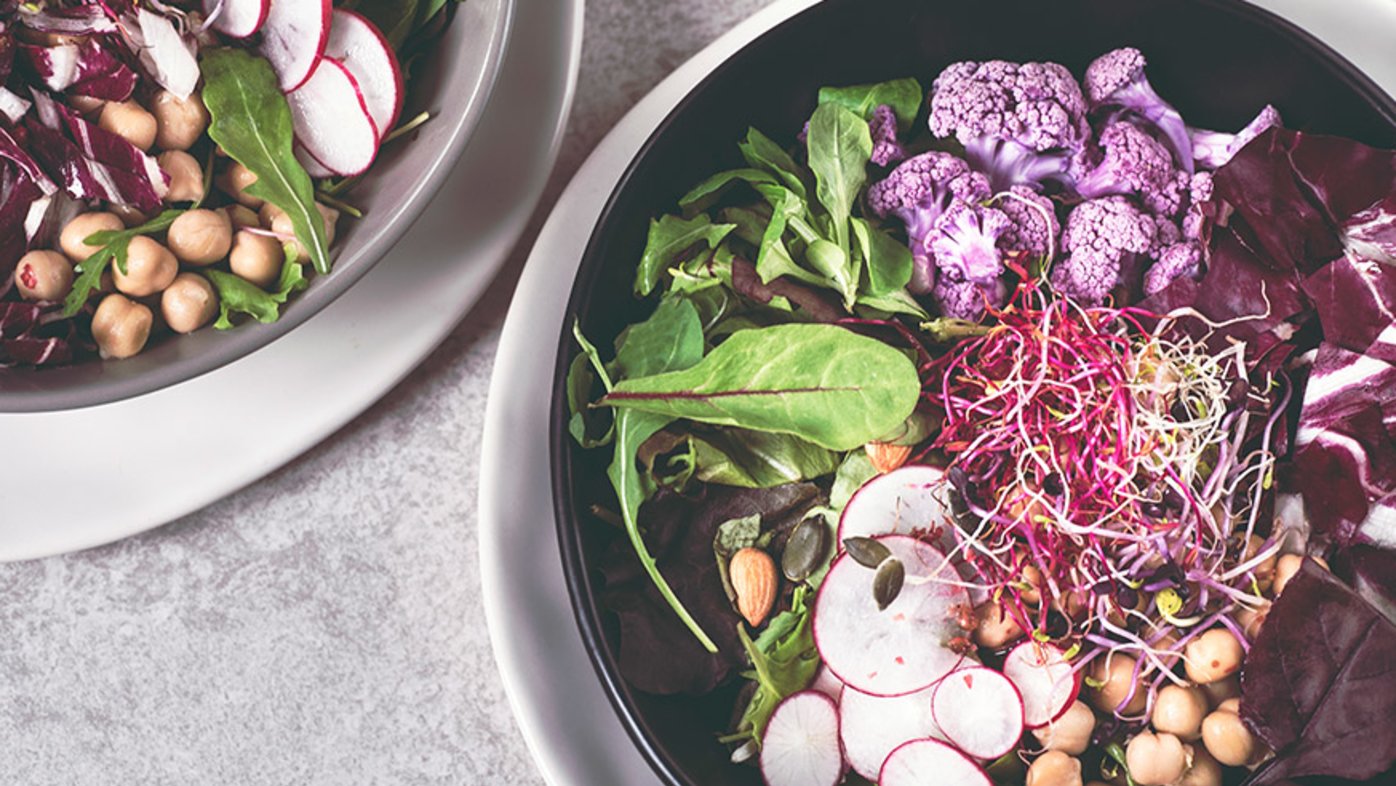
The benefits of a whole-food, plant-based diet
Moving to a plant-based diet is easier than you think — and it comes with a bevy of benefits.
Among its many other benefits, San Diego's moderate climate means you can enjoy an outdoor barbecue all year long. These simple tips can help make your next backyard cookout healthier (and just as flavorful).
1. Avoid overcooking or burning meat.
When meat is overcooked, carcinogens form on its surface. To reduce your exposure to these cancer-causing compounds, scrape charred food bits off of your grill before cooking, trim excess fat off of the meat and keep an eye on the clock.
2. Add flavor without compromising nutritional value.
Studies show that marinating meat, poultry and fish for 10 minutes can reduce the formation of hydrocarbons. However, many marinades contain high amounts of sugar, which can burn your food when grilled over high heat.
There are many healthy ways to season and flavor meat without resorting to high-sugar sauces. In addition to making your own healthy marinades (think olive oil mixed with herbs and spices), you can also use low-sodium Worcestershire sauce, chili sauce, tomato paste and soy sauce.
Ursula Ridens, a Sharp-affiliated registered dietitian, suggests using, oregano, paprika, chili powder, curry or garlic — because they’re great sources of antioxidants and have anti-inflammatory effects in the body. Squeeze on some lemon or orange to add flavor and a kick of vitamin C. Be mindful of using salt for flavor as the sodium can contribute to high blood pressure and heart disease.
3. Heat it up!
To ensure your grill reaches the proper temperature — and to kill off remaining bacteria — preheat it 20 to 30 minutes before you start cooking. Your grill should be 400-450°F on a high setting, 350-400°F for medium-high, 300-350°F for medium and 250-300° F for low heat. A grill that is heated properly sears foods on contact, keeps the insides moist and helps prevent sticking.
4. Throw some veggies (or fruit) on the grill.
With barbecues, come side dishes and snacks like crackers and dip, chips, baked potatoes, pasta salad, and corn on the cob. Be sure to balance these out by filling half your plate with fruits and veggies.
Ridens reminds us, “There are so many grill-friendly veggies like bell peppers, asparagus, zucchini, onions or artichokes … you can even grill cabbage and cauliflower. For smaller veggies, place on a perforated grill pan or foil to keep them from falling through the grates.”
After the meal, surprise and delight your guests with a sweet dose of grilled pineapple, peaches, nectarines, plums or other fruits of your choice. The caramelized sugar of the fruit makes for an irresistibly sweet treat.
5. Choose a lean protein.
“Lean protein sources like skinless chicken, fish and lean cuts of pork (tenderloin) or beef (sirloin) are great for barbecuing," says Ridens. "If you don’t like the smell of cooking fish in your kitchen, grilling outside is a great way to still get those heart-healthy omega-3 fatty acids from fish.”
Our weekly email brings you the latest health tips, recipes and stories.